Hey there reptile lovers! So your kid is begging for their first scaly friend to call their own. I get it, I was once a wannabe herpetologist myself. But where do you start when picking out the perfect beginner reptile pet?
As an experienced reptile owner and breeder, I’m here to walk you through the top 10 options that are ideal starter pets for young first-timers. Safety, ease of care, handling, cost – we’ll cover everything you need to consider. My goal is to set your kid up for success in this exciting new chapter!
I’ll also address some of the most common concerns and questions parents have about their children having reptiles. So let’s dive right in!
The 10 Best Starter Pet Reptiles for Kids
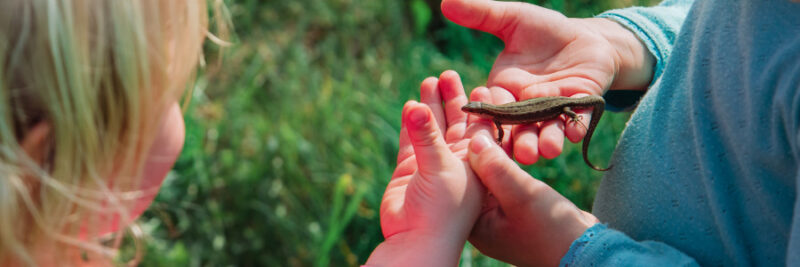
1. Leopard Geckos

The leopard gecko is basically the ultimate beginner lizard. Their size, temperament and simple care make them a no brainer for youngsters new to reptile keeping.
Some key reasons they shine as starter pets:
- Stay relatively small, maxing out around 8-10 inches as adults
- Docile and easy to handle, rarely biting even when young
- Require simple habitat setups that are low maintenance
- Hearty eaters that aren’t too picky about diet
- Long lived for a reptile at up to 10-20 years
It’s hard to top leopard geckos when it comes getting the basics of reptile care down. Their mellow attitude coupled with an ability to thrive in basic enclosures allows newbies to learn the ropes without too many hiccups.
2. African Fat-Tailed Geckos
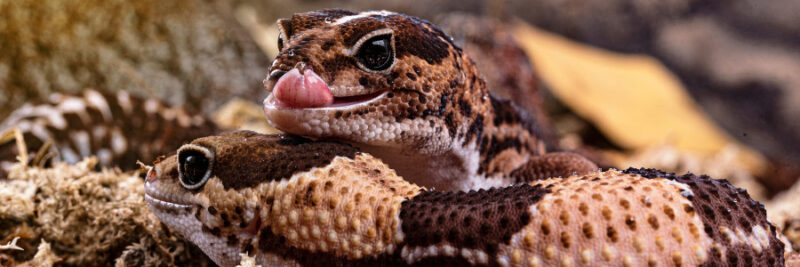
Close cousins of the leopard gecko, African fat-tails are another suitable choice for novice owners. They share many of the same perks:
- Compact size as adults (8-10 inches)
- Docile nature, will tolerate gentle handling
- Straightforward habitat and heating needs
- Hearty appetites for feeder insects
- Long captive lifespan of 10-20 years
Their fat rubbery tails are an adaption to store fat for lean times. But it gives them a unique “chubby” look kids find adorable! Just be sure to interact gently with these geckos, as too much pressure on their tails can injure them.
3. Crested Geckos
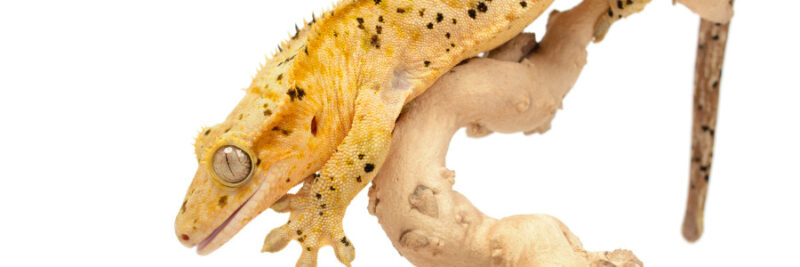
If bright colors and fun crest shapes catch your kid’s eye, then definitely consider these tropical charmers! Some advantages of crested geckos:
- Stay relatively small as adults at 6-8 inches
- Easy to tame specimens that will hand feed
- Easily housed in naturalistic planted enclosures
- Take prepared fruit diet mixes instead of insects
- Can live over 10 years with proper care
Their simple fruit-based diets makes feedings super easy. And their fabulous patterns and pacifist attitudes endear them to young fans. Just watch those delicate tails during handling!
4. Ball Pythons
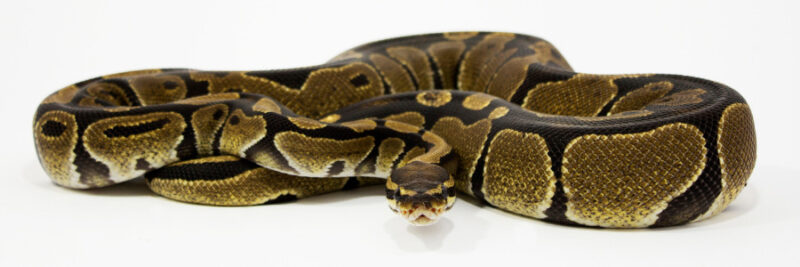
When it comes to pet snakes, ball pythons can’t be beat for beginners. Here’s why they excel as first snakes:
- stay a very manageable size of 3-5 feet adult length
- typically have a docile, tolerant personality
- straightforward caging and heating needs
- heartily accept frozen/thawed rodents
- can live over 20 years if cared for properly!
Their exotic look yet mellow nature lets kids learn true snake care with a low drama species. Just make sure to buy a well-started captive bred baby so personalities are predictable.
5. Corn Snakes
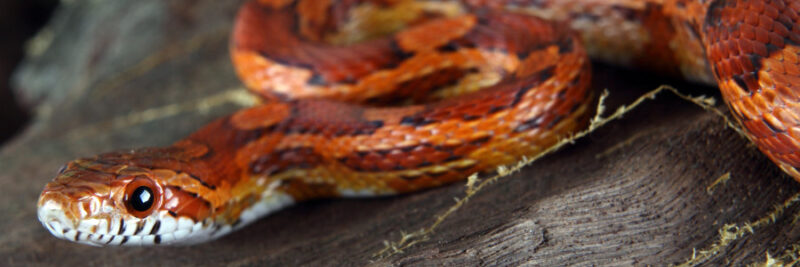
Another iconic starter snake has to be the corn snake. Some reasons they make great kids’ snakes:
- max out at a modest 4-6 feet adult length
- typically gentle natured with consistent handling
- simple habitat needs without intense heating
- eagerly accept frozen/thawed rodents
- long lived at 15-20 years if cared for well
Hardy corn snakes let young handlers make some mistakes while still thriving. Their sporadic feeding/fasting cycles also help kids learn patience and self control!
6. Bearded Dragons
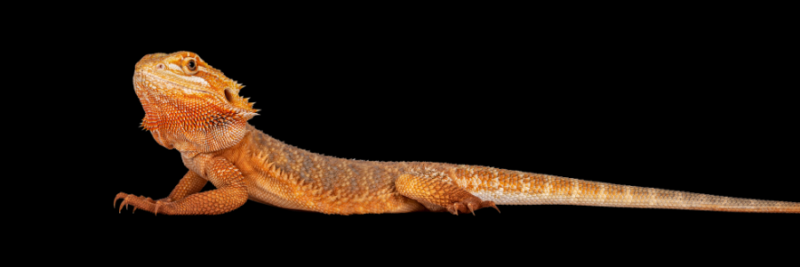
I couldn’t leave off these popular lizards – beardies offer much fun if kids are ready to level up! Perks include:
- engaging mid-sized reptiles at 16-22 inches adult length
- a chill personality that enjoys human interaction
- straightforward enclosures with basking lights
- omnivorous diet of bugs/veg/fruit
- can live over 10 years if well cared for
Outgoing beardies encourage kids to be proactive caretakers. But do note they need more space and attention than starters like geckos or snakes!
7. Russian Tortoises
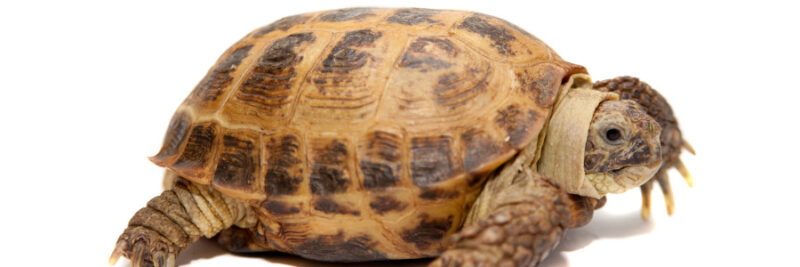
For an unconventional pick, small turtle-like tortoises can be enchanting pets. Some upsides:
- compact adult size of 5-8 inches
- docile when handled gently and occasionally
- simple indoor pens work well
- mainly veggie/leaf/grass based diet
- very long lived species, 50+ years possible!
Slow yet sweet “torts” teach patience and gentleness. Just know kids will need help keeping their habitats clean and nails trimmed.
8. African Dwarf Frogs

If your kid adores amphibians, these tiny aquatic frogs are a safe bet:
- remain very small under 2.5 inches length
- quite hardy if water quality is maintained
- low lighting/heating needs
- relish live or frozen foods
- can live 5+ years with good care
Their wee size lets them thrive in desktop setups. Parents will need to help with water testing/changes though!
9. Green Anoles
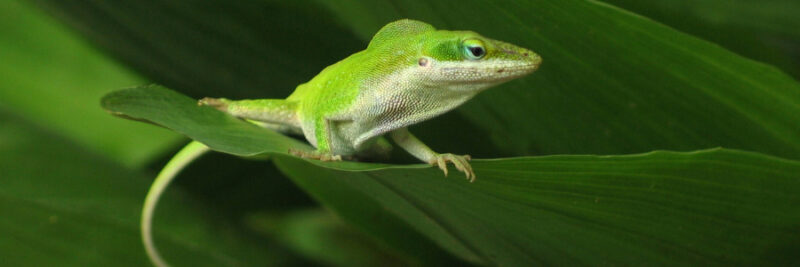
Vivid green anoles can be great small lizards for attentive kids. Benefits include:
- compact adult length of 5-8 inches
- enjoyable to watch using vertical space
- insectivore diet easy to provide
- basic heating/lighting needs
- 5 year avg lifespan (less than some)
Lively green anoles need room to climb/hunt bugs. As long as kids give them proper space and food, they thrive!
10. Pacman Frogs

I’ll end our list with a unique amphibian pick – the cartoonishly voracious pacman frog! Pros are:
- stay small as adults at 3-5 inches
- have calm despite goofy personalities when handled
- simple terrarium housing needs
- eagerly eat gutloaded feeder insects
- can potentially live over 10 years
Blob-like pacmans provide some key lessons in responsible pet keeping! Set young caretakers up for success by handling care tasks needing dexterity.
Frequently Asked Questions About Kids Having Reptile Pets
Now let’s cover some common concerns parents have regarding reptile and amphibian pets for their children:
Based on ease of care, hardiness, disposition for handling, and manageable lifespan - I recommend leopard geckos, African fat-tailed geckos, crested geckos, and corn snakes for absolute beginners. Ball pythons and bearded dragons are suitable for slightly older or more mature kids ready for intermediate care.
It’s smart to have some concern - all animals have teeth/nails! For minimizing bites, stick to naturally docile & non-aggressive species profiled earlier, and set clear expectations for gentle handing. Supervise young kids until they demonstrate good technique. To reduce illness risks, always wash hands before and after contact, and have kids help you thoroughly disinfect habitats. Avoid reptile kisses just like dog/cat ones!
Expect an initial setup investment between $200-300 for housing, heating, lighting, habitat decor/accessories & vet checkup.
Then budget $100-150 yearly for food items, replacement bulbs, supplemental vitamins & periodic vet visits as needed. Some species have lower long term costs than others. Do research to make the initial commitment!
Key signs of readiness are: demonstrating consistent attentiveness to an animal’s needs and cues over weeks/months through caring for classroom pets or family cats/dogs, provable research into proper setups & nutrition, saved allowance funding showing planning, and maturity accepting full daily animal care duties under parental supervision, not just visits for playtime.
Have more questions about the perfect starter reptile pet? Just drop me a line! I’m always happy to help responsible kids and parents prepare for these engaging newcomers. May your new scaly adventure bring years of smiles and maybe even inspire a budding herpetologist!
